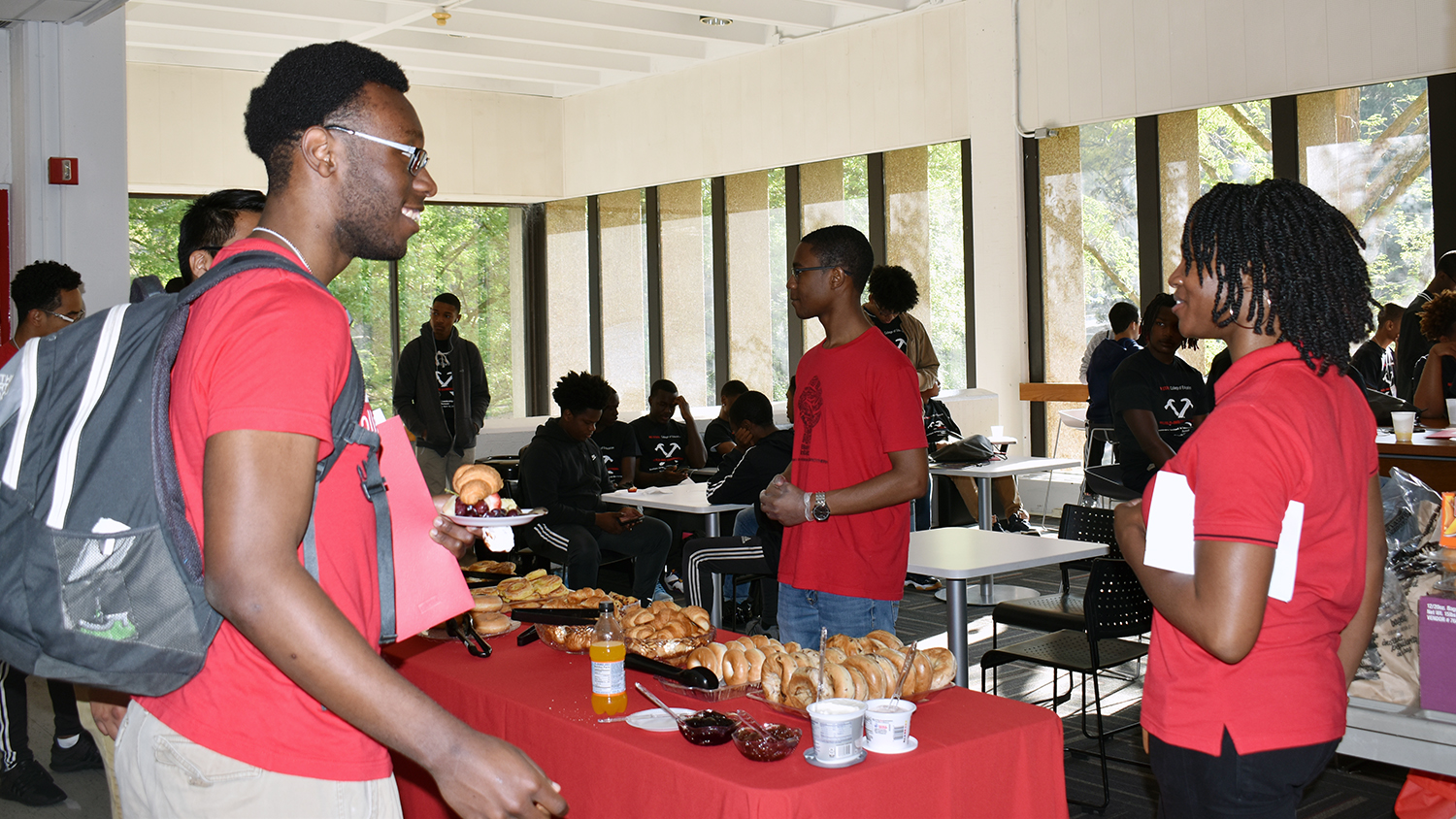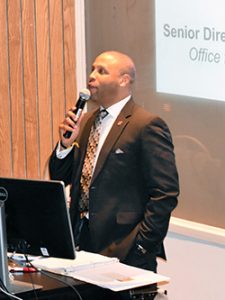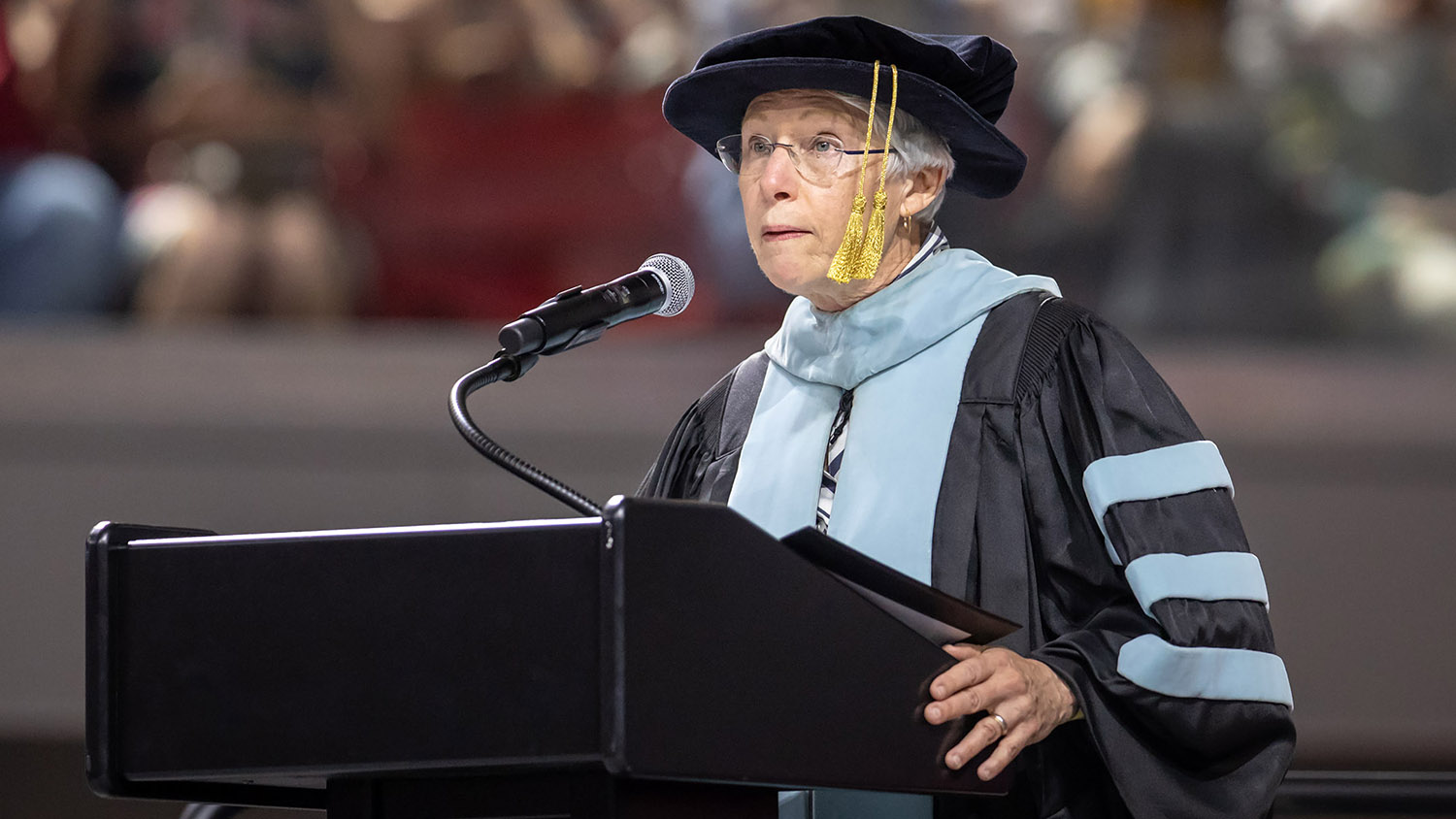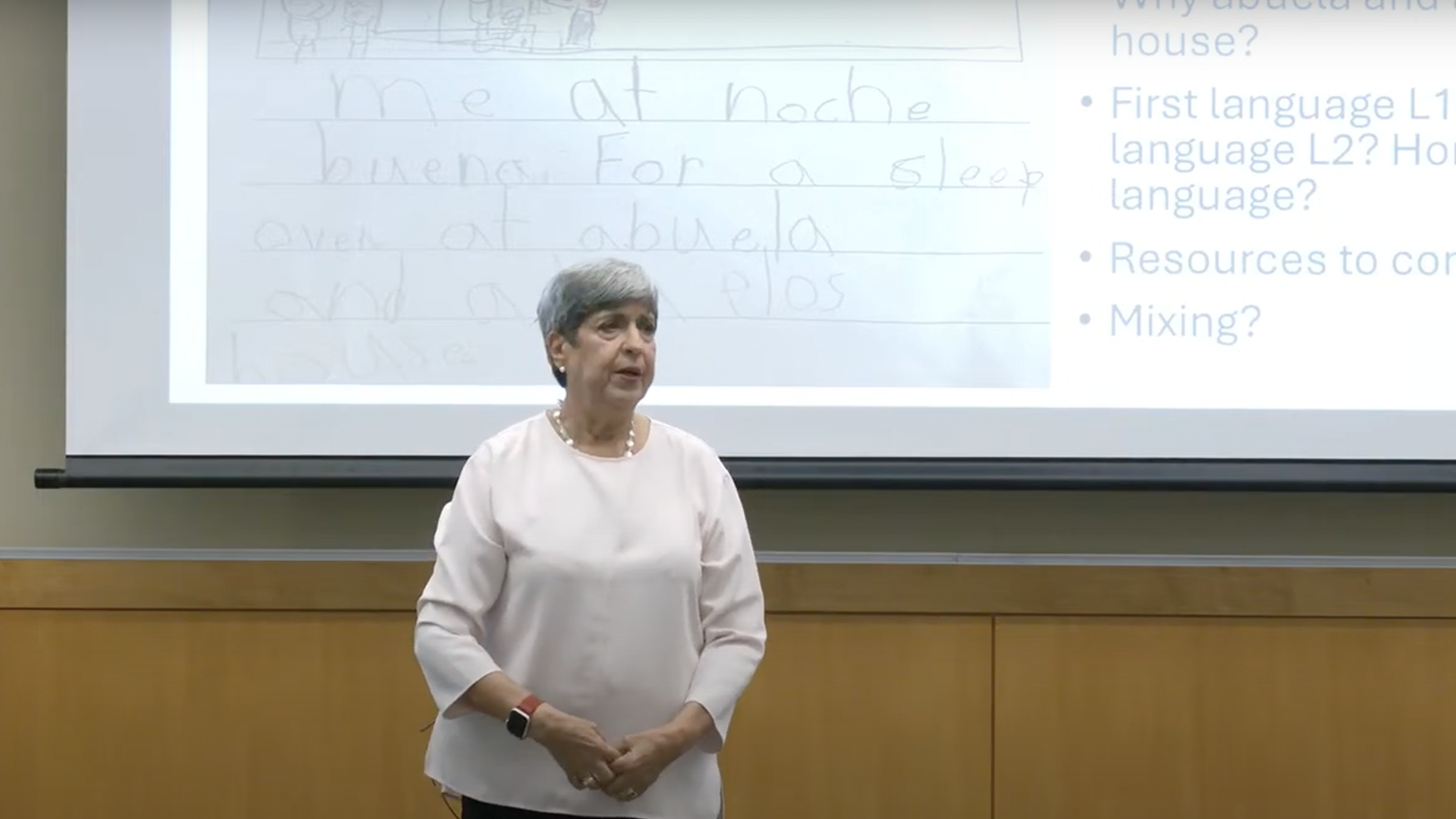B.U.I.L.D. Summit Brings 100+ High School Male Students Together to Encourage “Building Community”


Reggie Barnes, the senior director for Campus Community Centers within NC State’s Office for Institutional Equity and Diversity, was on a full academic scholarship when he started college. But after his freshman year, he had a 1.4 GPA.
“I never asked for help. Don’t make that mistake,” Barnes told over 100 high school male students of color during his morning keynote address at the NC State College of Education’s third annual Brothers United in Leadership Development (B.U.I.L.D.) Summit.
Designed around the theme “Building Community,” the summit brought the ninth, 10th and 11th graders together on Saturday, April 14, to receive leadership training, participate in group discussions and workshops, and develop career and college readiness skills while building community with each other and with community and school leaders and with NC State faculty, staff and students
“Every day the mindset has to be not to survive but to thrive. . . . And you have to realize that you can’t do it by yourself,” Barnes said. “American society would have you believe only the strongest will survive No, brothers, that is not how our ancestors lived. . . . You should want to belong to a network of support — a village — that will feed and support you.”
The NC State College of Education started the B.U.I.L.D. Summit three years ago to help feed and support high school male students, particularly those of color.
“We want our participants to examine their personal identities and both understand and explore their roles in how they will work to build their communities as effective leaders and citizens,” said Regina Gavin Williams, one of the organizers of the B.U.I.L.D. Summit and the director for student engagement and diversity coordinator at the NC State College of Education.
During the morning portion of the B.U.I.L.D. Summit, the high school students from across North Carolina rotated throughout breakout sessions that focused on goal orientation, personal identity and values, and developing a community and support network that community and university leaders led.
In the afternoon, they attended the annual Courageous Conversations panel that featured several professionals who work in law enforcement, the criminal justice system, the legal system, and community and activism who discussed “Building Communities without Badges.”
Afterward, they learned more about the college experience during several additional sessions. They also participated in small group discussions with NC State students, faculty and staff.
- Categories:


